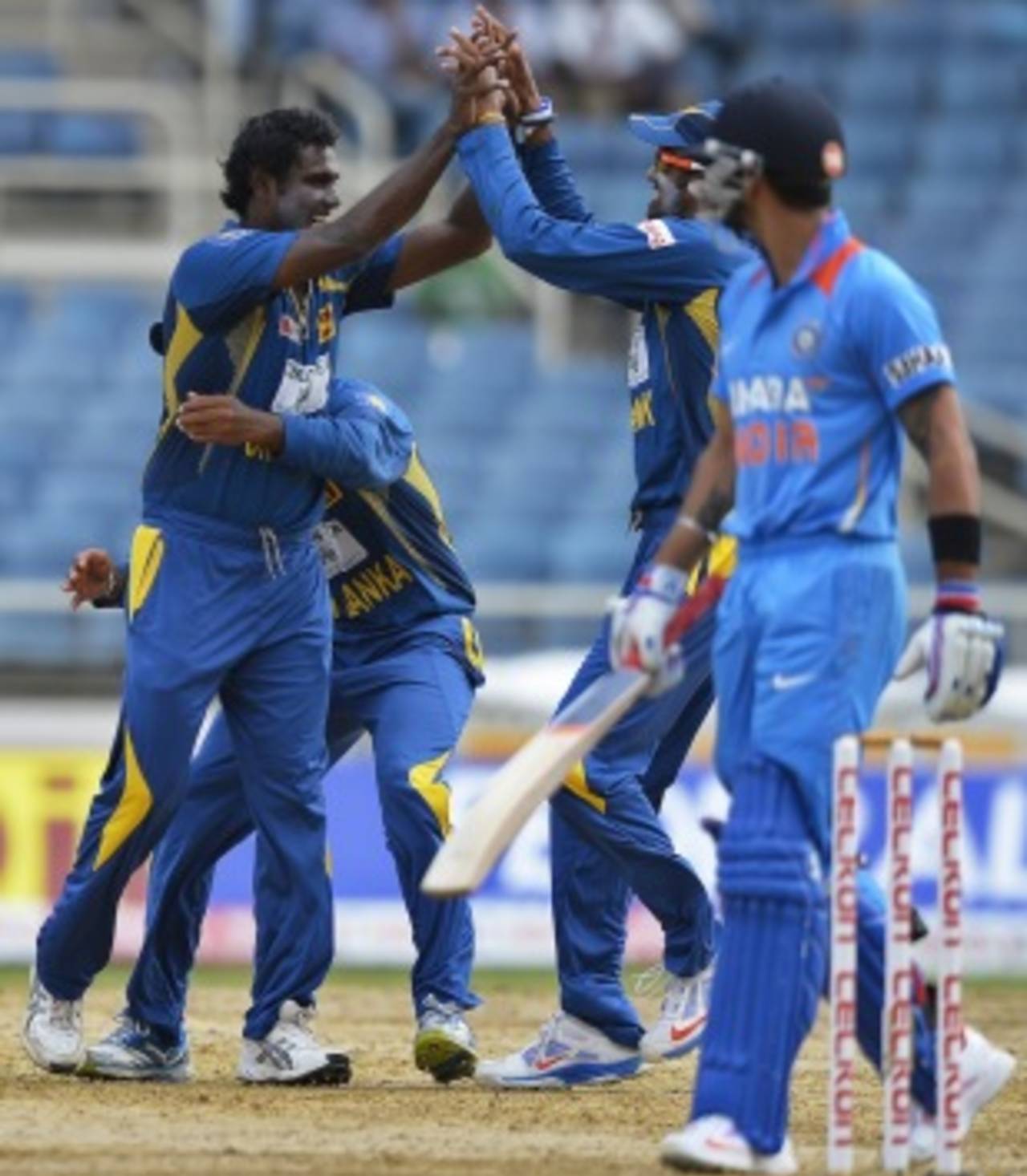Asking a team to chase 349 in an ODI is like asking Usain Bolt to run as fast as he would for a 100-metre sprint, but over a distance of ten kilometres. Bolt would be expected to start strongly, get into a rhythm and then keep sprinting until the very last lap. India's task against Sri Lanka at Sabina Park was as impossible as that hypothetical race. They had pulled off something similar before, though.
Once India conceded 348 on a pitch that behaved radically different from the sluggish ones in the first two matches in Kingston, it brought to mind memories of another chase against Sri Lanka,
in Hobart.
At Bellerive Oval, India had been on the brink of elimination from the tri-series and needed to chase 321 inside 38 overs. They were aggressive from the outset, continuing the onslaught even after losing a few wickets, and attacked until the target was achieved in the timeframe that had seemed improbable. While conditions in Jamaica and Hobart were quite different, the method of that chase could have served as a reference point for this one.
In Hobart, Virender Sehwag and Sachin Tendulkar disregarded the slight lateral movement in the air and off the pitch to wrest the initiative. They played innovative shots to unsettle the Sri Lankan bowlers and also to announce India's intent to fight. In Jamaica, however, the Indian batsmen sleepwalked through the mandatory Powerplay.
India had been 97 for 2 after ten overs in Hobart; they were 28 for 1 on Tuesday. During that time, the asking rate of seven per over had jumped to eight. The lack of runs during the fielding restrictions could have been easier to understand had India lost wickets while attempting big shots, but the fact that they didn't show an intention to get a move on was baffling.
The blistering start in Hobart had allowed India the room to consolidate once the field restrictions were lifted. Virat Kohli and Gautam Gambhir scored at around a run a ball for the next twenty overs, but the initial blitz kept them at pace with the asking rate. The urgency, even when the big hits weren't as frequent, had been palpable.
Such urgency from two well-set batsmen - Shikhar Dhawan and M Vijay - was nowhere to be seen at Sabina Park. Either they were too bullish about their ability to score 15 an over later on, or they didn't realise the hole they were digging might be too deep for the others to escape from. Once they, and Kohli, were dismissed, it was over. India had lost the match within the first 20 overs of the chase. The fact that the slow scoring didn't prompt a change in the batting order, or the taking of the batting Powerplay before the 36th over, indicated a lack of fight.
The only batsman who showed urgency and the right intent, Suresh Raina, came in after the result was a foregone conclusion. The absence of MS Dhoni in the lower order should have dictated a more aggressive approach at the top, but it did not.
While two chases cannot be identical, India could have tried to follow the example they had set 18 months ago. Hobart was a perfect chase of a 300-plus total in a reduced number of overs; Jamaica was a perfect example of how it must not be done.
The most striking feature of the Indian team that won the Champions Trophy a couple of weeks ago was the fearless approach to batting. In the first two matches of this Caribbean tri-series, that approach has been discarded.
It is possible that this Indian team is slightly jaded too, for winning a major trophy can be physically and mentally exhausting. These players have played non-stop cricket for the last three months and that must take its toll at some stage. An excessive amount of cricket could mean that victories lose their sweetness and losses their sting. Hopefully, that is not the case yet for this young Indian team, otherwise there will be more of the same in Trinidad.
Former India opener Aakash Chopra is the author of Out of the Blue, an account of Rajasthan's 2010-11 Ranji Trophy victory. His website is here and his Twitter feed here
